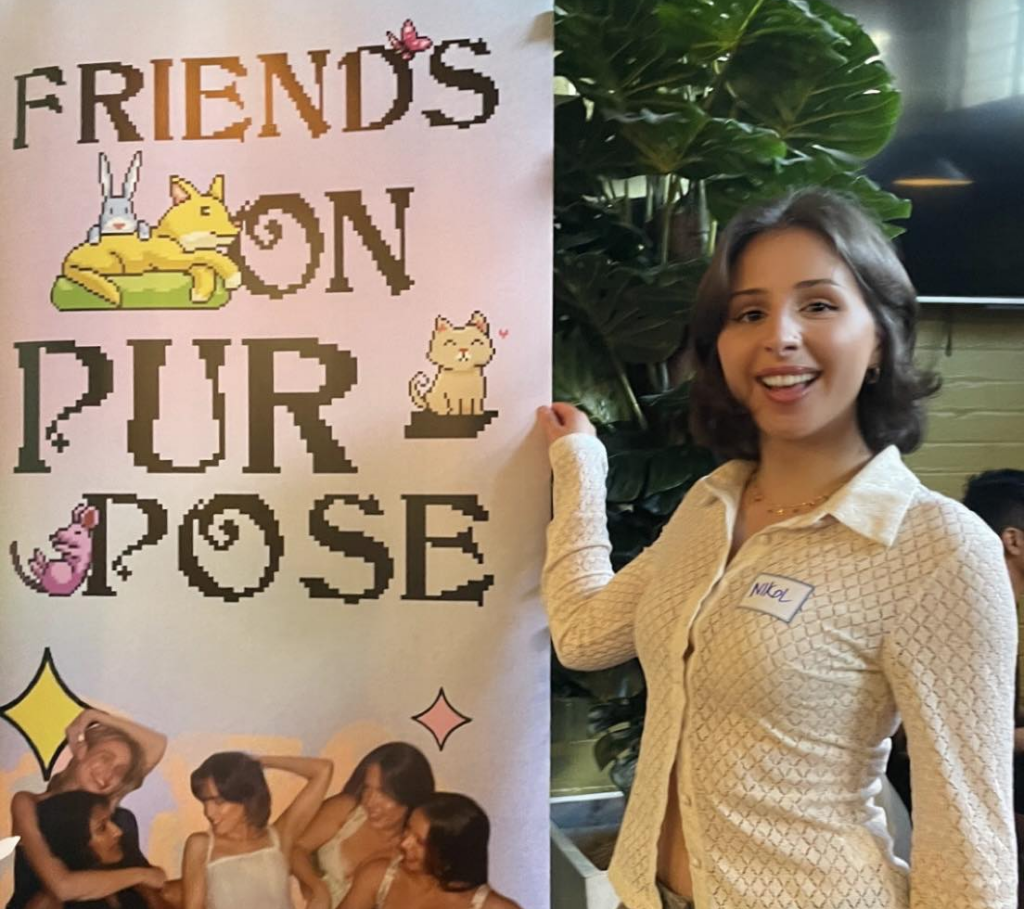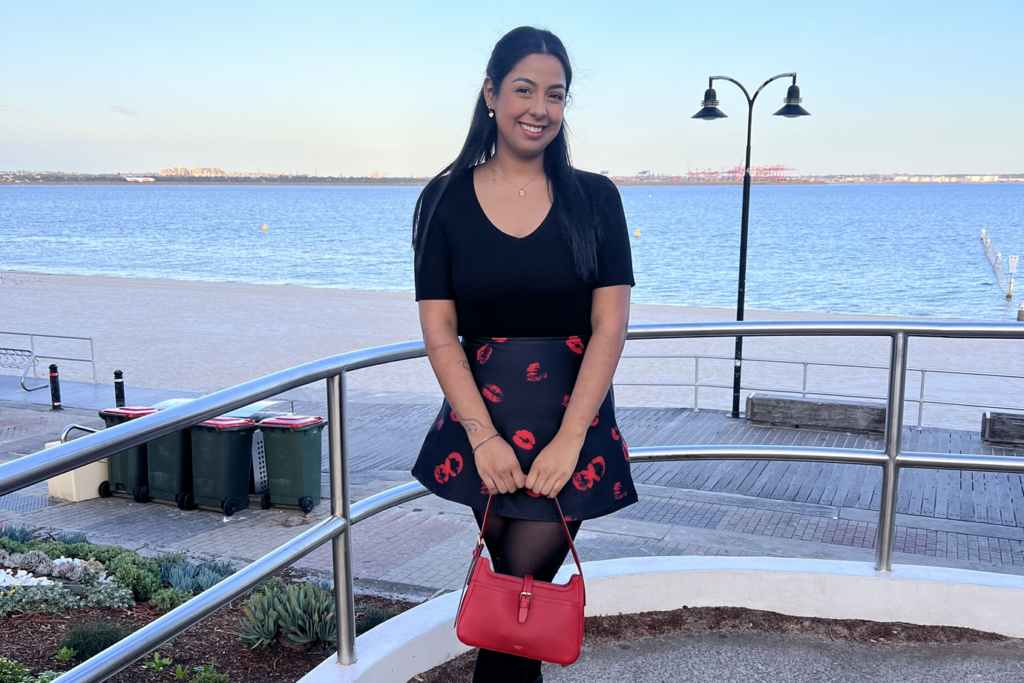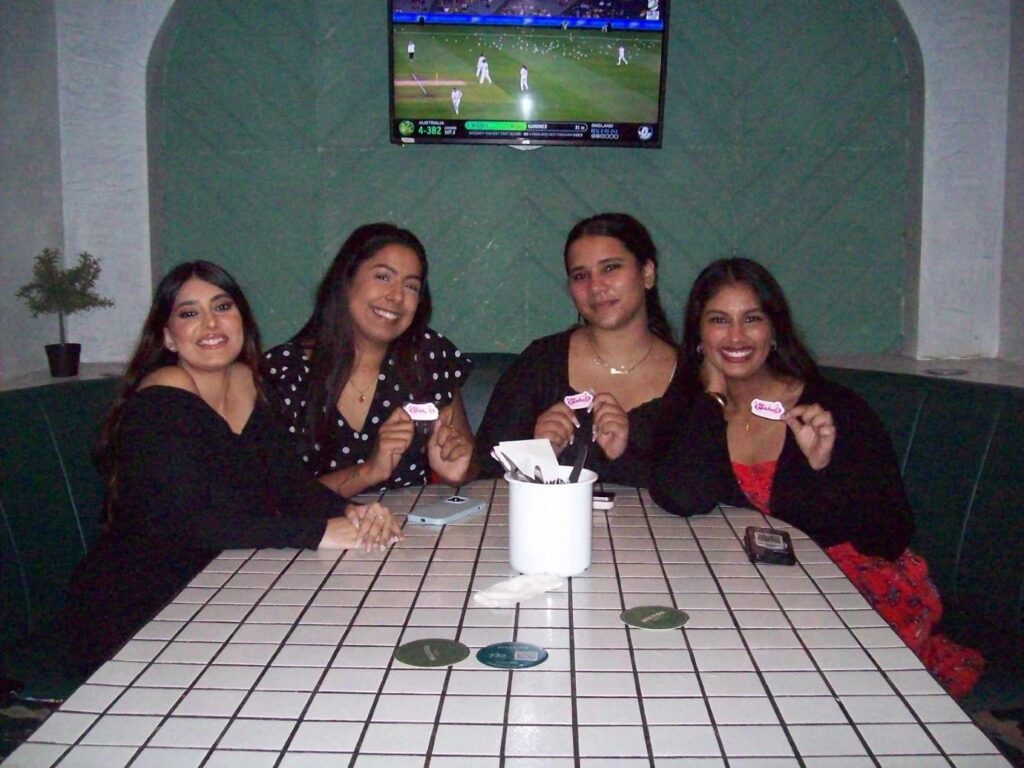When Nikol Moses moved from Melbourne to Brisbane, she’d thought it would be straightforward making new friends.
“I’ve got hobbies and I’m not too afraid to put myself out there,” she tells Women’s Agenda.
But for the first nine months of living in her new city, it just didn’t work out for her socially and feelings of loneliness started to creep in. It was so bad that she considered moving back home.
“It was just the most horrible experience I’ve ever had to go through, because I kept trying to put myself out there and meet people, but it just wasn’t really working,” she says.
At the time, it was popular on TikTok to do ‘friend application’ videos, where you talk about yourself and ask, does anyone want to be friends with me?
Feeling isolated, she posted one herself and received hundreds of DMs from people saying they were in the same position and would love to meet up. For Moses, it was a moment of quiet reassurance, but it also sparked the beginning of Friends on Purpose, an organisation she started to bring people together through group events in cities across Australia.
Friends on Purpose caters to women aged from 18 to 35 and has proved to be a successful formula in supporting women to build new friendships and maintain social connections.
In May 2023, Moses hosted her first event and says in the nearly two years since, the demand has remained incredibly strong.
“Once the word was out there, people were really keen to come,” Moses shares.
“Our standard event is a mixer format, where a bunch of people come, we do activities to get you introduced to as many people as possible. And then you can take it from there, if you feel like you want to stay in touch. Other times, we will do curated seating, so we’ll match people on tables based on their bios.”

According to the latest Medibank Loneliness Population Index, more than half of Australians say they feel lonely in a typical week. And while men and women broadly experience similar levels of loneliness, research from Medibank shows Australian women were slightly more likely to rate highly on UCLA’s loneliness scale.
For young women aged 16-24, 41 per cent rated high on the scale, more than any other age group. The more she’s been involved in supporting others to make friends, the more it’s become clear to Moses just how deep our loneliness problem runs.
“We are in the middle of a loneliness epidemic,” she says. “Countries are appointing ministers of loneliness, but slowly, people are becoming much more open talking about it.”
Moses says that about 50 per cent of the women who turn up to her events have lived in the one city for their entire lives and are lacking meaningful friendships. Often, they have transitioned from the familiarity of high school into university and feel out of sync as the priorities of people around them evolve. Often, romantic relationships take priority over friendships and people take on different work opportunities. Meanwhile, university unfolds primarily online and isn’t the same space it once was for creating new social connections.
“Just being around new people for the night and getting to talk to a bunch of people that you wouldn’t ordinarily and hear all these people’s stories is a recharging experience,” Moses says.
From bakery hopping on a Sunday morning, to Pilates in the park after work, ‘speed friend-ing’ or games nights, Friends on Purpose events have helped hundreds of women make new connections. For Moses, it’s just the beginning—she says she’s committed to helping as many women build the friendships she so sorely missed when she first moved cities.
Finding your tribe
Sydney-based Gurnoor Kaur recently launched Saheli, a group that brings young women of colour together to socialise and combat loneliness through a range of fun events across the city.
The 22-year-old postgrad psychology student says a lack of dedicated spaces for young women—and specifically for young women of colour—has made it difficult to form social connections and new friendships.
“In today’s world, there’s a lot of male-dominated spaces, like gyms for example, and sometimes you just look around and you’re like, ‘where are all the women?’ I felt that way. And I think women’s spaces, safe spaces, are important,” she said.

The name ‘Saheli’ means ‘female friend’ in many native Indian languages, Kaur says, noting that it felt like the perfect name to kick-start her friendship movement for women of colour.
“The fact that there’s a word for it, it shows that even within our ancestors, there’s always been such a strong sense of community, and your tribe, and women coming together and sharing resources.”
Growing up, Kaur says she navigated cultural differences that sometimes prevented her from forming new friendships outside of her Indian culture.
“There was a lot of people pleasing and a need to be accepted because of expectations, and not feeling represented when you’re younger,” she explains.
Kaur says that Saheli welcomes any women of colour who want to take a step into building new friendships to fight any feelings of loneliness they are experiencing.
“If you have that genuine want to connect with other people and maybe have some more vulnerable conversations, go deeper, then this is probably the right place for you,” she says.

As someone who has struggled with her own mental health, Kaur says she hopes Saheli can help other women of colour to move beyond surface-level friendships and build more meaningful connections.
“One of the goals is to start having conversations about topics that are often considered taboo in our community, especially as women of colour, that we might be stopped from talking about,” she says.
“Particularly around mental health. For me, being from a psychology background and really having struggled with my own mental health, I think it’s really important.”
To learn more about Medibank’s commitment to reducing loneliness head to We Are Lonely | Medibank.
About the research
Research commissioned by FiftyFive5 on behalf of Medibank. Research was conducted in July 2024, among a sample of (n=4,131) Australians.

